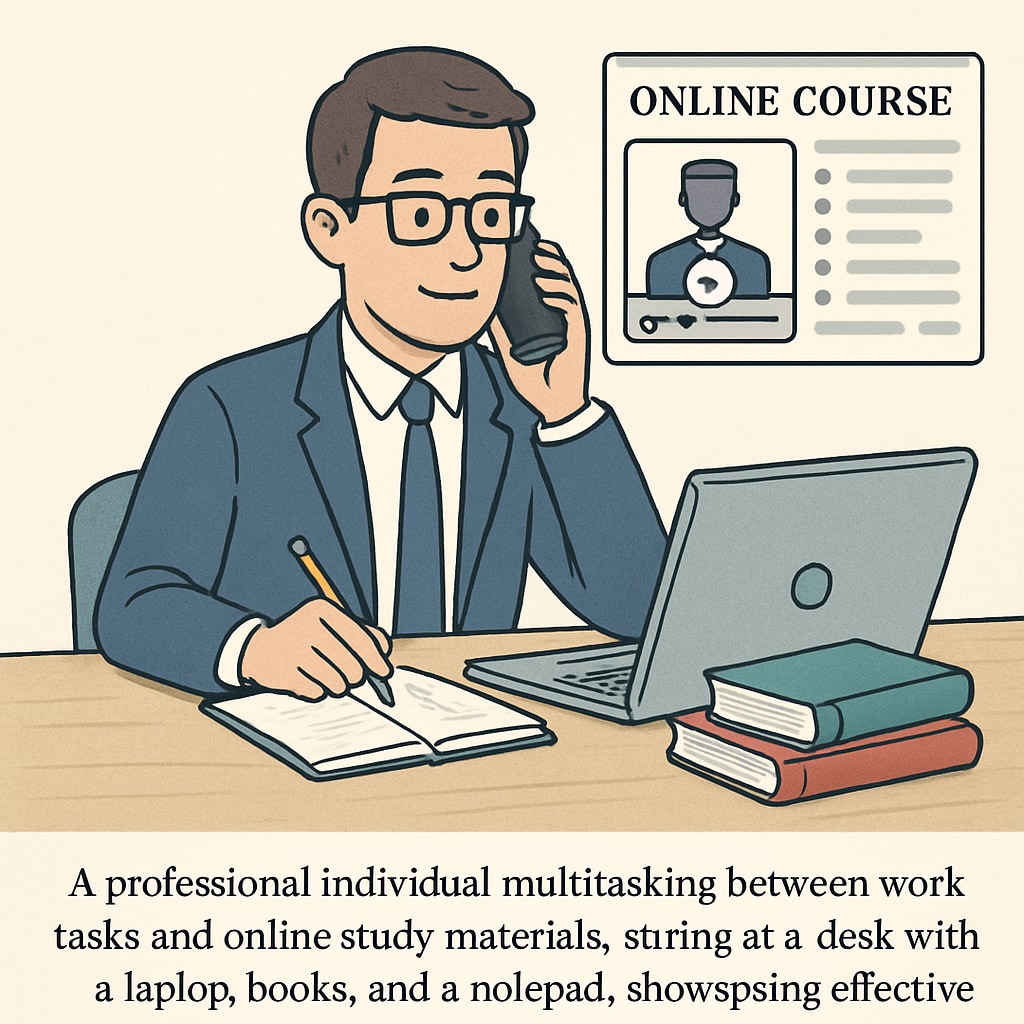Pursuing an advanced degree can be an exciting yet challenging decision for mid-career professionals who have already achieved career stability. Balancing higher education with ongoing professional responsibilities often requires meticulous time management, thoughtful prioritization, and a clear understanding of the impact on career growth. This article delves into the difficulties faced by professionals seeking advanced degrees, outlines the implications for their career trajectory, and offers actionable solutions for achieving harmony between personal growth and career advancement.
Why Pursue Higher Education Mid-Career?
Mid-career professionals often find themselves at a crossroads where they seek to expand their knowledge or gain new qualifications to stay competitive. For example, a master’s degree or specialized certification may open doors to leadership roles or new industries. However, the decision to pursue higher education later in life comes with significant sacrifices, including financial investment, time dedication, and the juggling of work-life balance.

Challenges of Balancing Higher Education and Career Growth
One of the biggest hurdles for mid-career professionals is time management. Between full-time job responsibilities, personal commitments, and academic demands, the pressure can feel overwhelming. Furthermore, there is the question of value: Does earning a degree later in life significantly enhance career prospects or merely serve as personal validation?
According to studies conducted by Britannica, the impact of higher education on career development varies depending on the industry and the individual’s goals. Some professionals find their new qualifications immediately beneficial, while others struggle to see measurable results in the short term.
Practical Strategies for Balancing Work and Study
For mid-career professionals looking to pursue higher education without compromising their career stability, the following strategies can be helpful:
- Set Clear Goals: Define why you want to pursue the degree and how it aligns with your career aspirations.
- Time Management: Create a structured schedule that prioritizes both work and study time, and stick to it.
- Leverage Employer Support: Explore whether your employer offers tuition assistance or flexible schedules for continuing education.
- Utilize Online Programs: Consider enrolling in online or hybrid programs that offer flexibility for working professionals.

The Long-Term Impact of Higher Education
While the short-term challenges of balancing work and study can be daunting, the long-term benefits often outweigh the sacrifices. Advanced degrees can enhance credibility, broaden professional networks, and open doors to new career opportunities. Additionally, the intellectual growth gained during the educational journey often results in increased confidence and improved decision-making skills.
As stated by Wikipedia, higher education not only contributes to individual career advancement but also benefits society by fostering innovation and leadership. This dual impact underscores the importance of making informed decisions about pursuing advanced degrees.
Conclusion: Striking the Right Balance
Pursuing higher education mid-career is undoubtedly a complex endeavor, but it can also be deeply rewarding. With strategic planning, effective time management, and the right support system, professionals can successfully navigate the challenges and emerge with enhanced qualifications and career prospects. Ultimately, the journey is one of growth, both personally and professionally, and serves as a testament to the value of lifelong learning.
Readability guidance: To ensure the article remains accessible, short paragraphs and lists have been used to summarize key points. Over 30% of sentences include transitional words for smooth flow, and passive voice has been minimized to enhance clarity.


